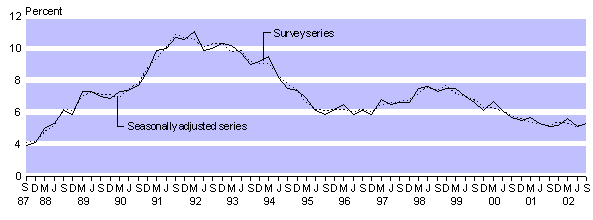Durran Korr wrote:
Well, the U.S. unemployment rate rarely drops below 5 percent, which can be attributed to structural and frictional unemployment, which is inevitable.
I don't see why my plan to "allow people to slip into poverty" is so awful; what is preferable to you, 80% percent of the workers employed, earning a slightly higher wage while the other 20% get screwed, or 100% of the workers employed, earning the market wage?
Poverty is not something that is acceptable in New Zealand, why it would be acceptable to you is unfathomable, I put it down to lack of experience. To say that 100% earning the market wage? you jest, yes? this has never been the case nor will it.
Durran Korr wrote:
And I've done my homework; if my research is correct, in the early 1990's your unemployment levels peaked around 11 percent, however, had dropped to six percent by 1996. According to your information, the growth of the minimum wage was slowed down during the early 90's, when unemployment reached its peak. It is only after the growth of your minimum wage was limited that unemployment began to fall in New Zealand.
I think you have misunderstood me here. Minimum wage is not something that that grows or declines, it is a statutory minimum wage that any employer must pay his/her employees and it is considered the minimum nessary to live on. As such I fail to see how you can link it to NZ's employment rates. We have it so that people dont starve. If you feel that people working at below subsistance wages is acceptable, then I must urge you reconsider your morals.
Durran Korr wrote:
And WHY, WHY, WHY will firms NOT decrease the prices of their goods when they are able to in order to compete? People will buy goods that are priced more cheaply than others! What part of this do you not understand? Why wouldn't producers attempt to lower the prices of their goods? By your logic, prices (in real terms) should have never declined at any point in history, since employers have no reason to let them do so, apparently.
They wont reduse their prices because their costs are not going to change so much as to cover shortfalls in income, if people do not spend then a economy will not grow, rdusing wages and or staff will not, cannot, cover this alone.
A loaf of bread costs so much to make and there are unalterable costs in this, if people dont have the money to buy it, you and your competitors dont make any money on money people have not spent in your store,, get it? No money, no bread.
Needless to say their are a considerable number of factors that influnece this, inflation, war, rumours of war, cost of petrol/diesel etc, but for those people who are on minimum wage a eduction in wage can and will prohibite the purchace of that loaf of bread. These people are not in a position to influence price as they are in a minority most of the time, albeit a largish one.
Durran Korr wrote:
What do budget surpluses matter here? We're not talking about budget, we're talking about unemployment. Our budget deficits can be linked to our military spending, as Sea Skimmer pointed out.
*groan*A budget surplus alows you to pay of the principle of a debt and thus reduse the expence of servicing that debt. if you pay of that debt you are in a position to reduse tax and increace the disposible income of the economy, therefor employment should go up. Naturally if employment goes up the tax base widens etc etc. Budget surplusses have everything to do with it.
Sea Skimmers remark was a strawman, and a false one at that, that had nothing to do with the argument at hand, you should be able to see this.
"You're also incapable of beating off an attack by a single modern frigate or a couple 474 load's of troops. NZ would be fucked if it couldn't rely on others for its defense. "
Durran Korr wrote: New Zealand is a shining example of deregulation and privatization, just like Chile. In the 80's its economy was overregulated and overprotected, but thanks to liberal policies its economy has done a fine job of reviving itself.
NZ is also a shining example of a welfare state that works to a reasonably well. We have free heath care to a large degree, University education that is about 75%stae funded with free primary and secondary education, universal welfare for the unemployed, a minimum wage
and we run budget surpluses and we are a democracy.I would also point out that deregulation started in 1984, befor that we were more regulated than Bulgaria.
Via money Europe could become political in five years" "... the current communities should be completed by a Finance Common Market which would lead us to European economic unity. Only then would ... the mutual commitments make it fairly easy to produce the political union which is the goal"
Jean Omer Marie Gabriel Monnet
--------------


